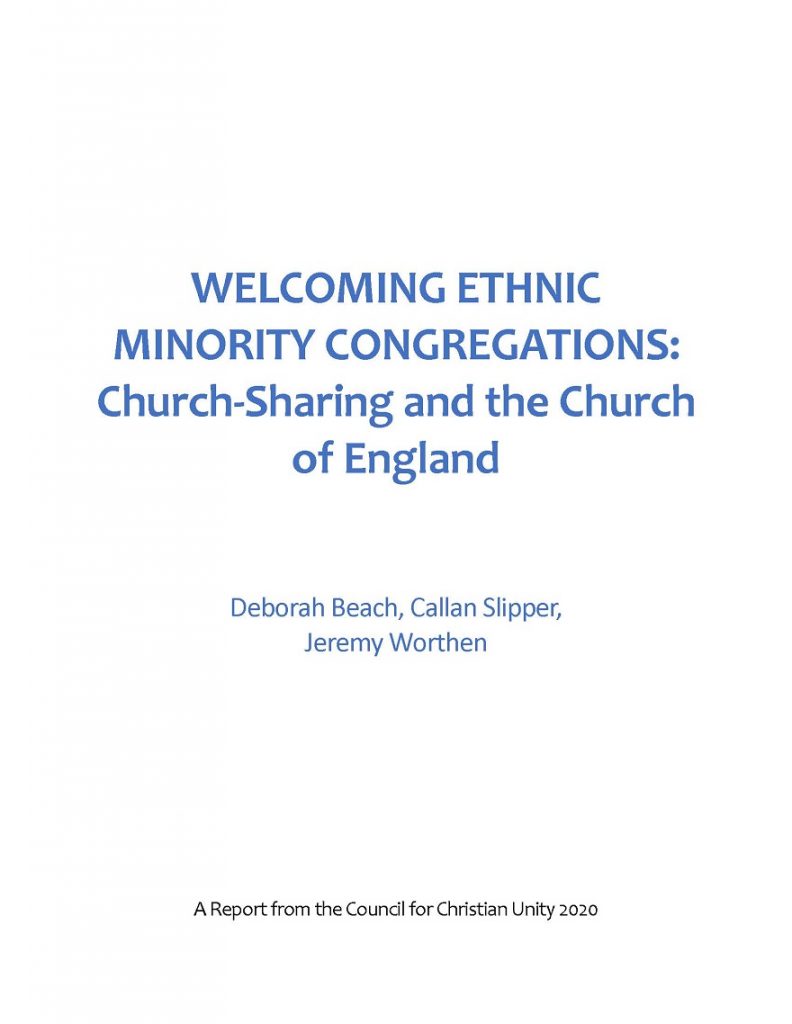
How in ecumenical settings the Church of England cares for Christian BAME congregations was uppermost in the minds of those who conducted some recent research. The focus was upon sharing buildings, a context where very often the Church of England is in a position of strength with regard smaller, but lively, churches. On a landmark day, 1 December, the Council For Christian Unity published its 2020 report Welcoming Ethnic Minority Congregations: Church-Sharing and the Church of England. The full text can be read on the Church of England website here.
This report is one example of how racial justice and ecumenism are intertwined. Both are about unity, the very thing Jesus prayed for on the eve of his death and the heart of his triumph in his agony on the cross, as the apostle Paul put it when speaking of the new life Jesus achieved for us, ‘there is no longer Greek and Jew, circumcised and uncircumcised, barbarian, Scythian, slave and free; but Christ is all and in all!’ (Col 3:11). This biblical vision of overcoming racial barriers leads us to ask how, in practice, are we in the Church of England living up to that.
We all know of our need for genuine and deep repentance. But there are also things to celebrate or even learn from in the past experience of the parishes of the Church of England – just as there are ways in which we can improve or perhaps resource better what we are doing. All of these motivations drove the Council for Christian Unity’s report. It begins to explore how Church of England parishes are coping with the changing reality of Christianity in England from the angle of the welcome they give to ethnic minority congregations. The question it puts to us is how these ecumenical relations are appreciated as a genuine opportunity for mission, learning from one another certainly, but also reaching out together to parts of society that can be better reached in cooperation.





